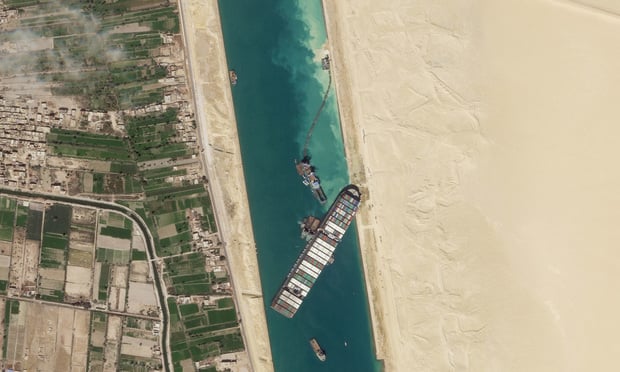 Short-term implications could include less of an appetite for what was not too long ago considered the best of the cargo business to underwrite: Ocean transit. (Credit: Planet Labs Inc. via AP)
Short-term implications could include less of an appetite for what was not too long ago considered the best of the cargo business to underwrite: Ocean transit. (Credit: Planet Labs Inc. via AP)
The running aground of the 1,312-foot Ever Given cargo ship in the Suez Canal was a historic event but only just the latest in a growing number of cargo transportation issues.
Recommended For You
Want to continue reading?
Become a Free PropertyCasualty360 Digital Reader
Your access to unlimited PropertyCasualty360 content isn’t changing.
Once you are an ALM digital member, you’ll receive:
- Breaking insurance news and analysis, on-site and via our newsletters and custom alerts
- Weekly Insurance Speak podcast featuring exclusive interviews with industry leaders
- Educational webcasts, white papers, and ebooks from industry thought leaders
- Critical converage of the employee benefits and financial advisory markets on our other ALM sites, BenefitsPRO and ThinkAdvisor
Already have an account? Sign In Now
© Touchpoint Markets, All Rights Reserved. Request academic re-use from www.copyright.com. All other uses, submit a request to [email protected]. For more inforrmation visit Asset & Logo Licensing.







